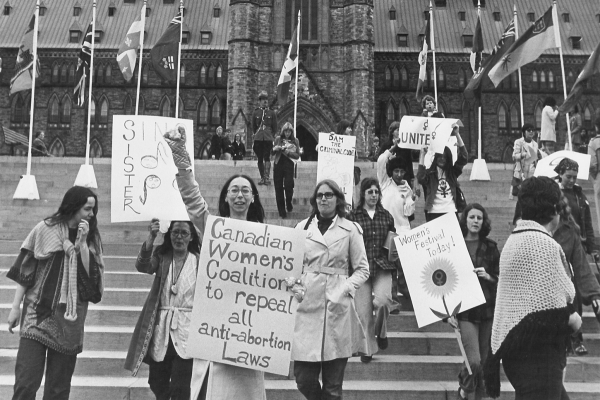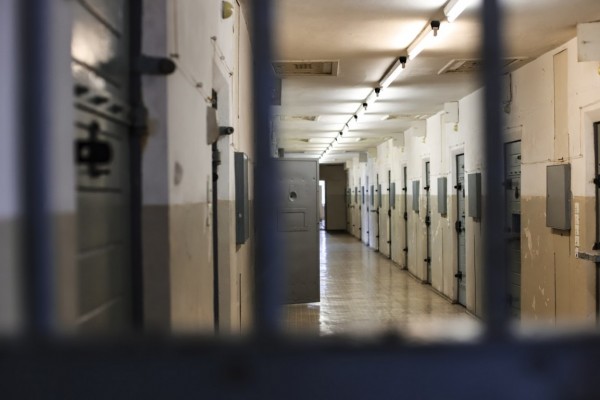Human rights tribunal rules Indigenous compensation plan insufficient
A quick glance at the stats reveals the genocidal foundation of our family and child welfare policies were never fully reformed

Thousands take part in the Every Child Matters march in Toronto on July 1, 2021. Photo by Michael Swan/Flickr.
On October 24, the Canadian Human Rights Tribunal (CHRT), the federal agency that decides whether a person or organization has violated the Canadian Human Rights Act, rejected the Trudeau government’s compensation plan for Indigenous people who have faced discrimination in Canada’s welfare system. The decision found that the Final Settlement Agreement (FSA) reduces compensation for some affected individuals below the amount to which they are legally entitled.
In 2016, a CHRT investigation concluded that “First Nations children and families living on reserve and in the Yukon are discriminated against in the provision of child and family services,” and that this discrimination “perpetuate[s] the historical disadvantage and trauma suffered by [Indigenous] people, in particular as a result of the Residential Schools system.” These policies, the tribunal wrote, cause “pain and suffering of the worst kind warranting the maximum award.”
The CHRT ordered the government to pay $40,000 to every affected child, the maximum compensation allowed under the Human Rights Act. In some cases, family members would be eligible for compensation as well.
The Trudeau government fought the ruling. In 2019, Ottawa appealed the tribunal’s ruling, writing in their appeal filing that the compensation order was “inconsistent with the nature of the complaint, the evidence, past jurisprudence and the Canadian Human Rights Act.” Trudeau stated: “We agree with the tribunal’s finding that there must be compensation for those who were hurt…But the question is how to do that. We need to have conversations with partners, conversations with leaders and communities to make sure we’re getting that compensation right.” Then-Conservative leader Andrew Scheer also said that, if elected, he would appeal the ruling.
In September 2021, the Federal Court of Appeal upheld the CHRT ruling ordering the Canadian government to pay compensation. Explaining the court’s decision, Justice Paul Favel asserted that Ottawa “has not succeeded in establishing that the compensation decision is unreasonable.”
A quick glance at the stats will reveal that the genocidal foundation of the Canadian state’s family and child welfare policies was never fully reformed. Roughly 52 percent of children in foster care are Indigenous, despite the fact that Indigenous children make up 7.7 percent of Canada’s child population. On top of that, on-reserve child welfare systems receive 38 percent less funding that off-reserve systems.
In Ontario, “the proportion of Indigenous children admitted into care [is] 2.6 times higher than their proportion in the child population.” In Manitoba, roughly 80 percent of children in foster care are Indigenous, and cases in which children were seized off reserves comprise 60 percent of all child welfare cases. The pattern is similar across the country. As Cindy Blackstock says, there are now more Indigenous children in foster care than there were in residential schools at the height of the genocidal program.
Stephen Harper also opposed any proposal to compensate Indigenous peoples for the harms they endured due to discriminatory welfare policies. In 2007, the First Nations Child and Family Caring Society and the Assembly of First Nations filed a complaint against the federal government “alleging that child welfare services provided to First Nations children and families on-reserve were flawed, inequitable and discriminatory.” The Harper government went on the attack, filing motions to dismiss the complaint, spying on head of the Caring Society Cindy Blackstock, barring her from meetings, and “knowingly refus[ing] to disclose 90,000 ‘highly relevant’ documents when a 70-day hearing began 2013.”
In 2013, the CHRT began hearing evidence. In 2016, the court issued its decision, and in 2019, it released its compensation order.
In total, the Trudeau government filed three judicial reviews against the court’s decisions. In 2020, Ottawa also challenged a tribunal conclusion that the federal government was not implementing Jordan’s Principle, “a legal rule Ottawa must follow to ensure First Nations kids don’t suffer unreasonable delays when trying to access essential health and social services.” Later, the Trudeau government appealed a ruling issued on August 26, 2021 “ordering Canada to fund First Nations child welfare agencies so they can build or buy property, buildings, vehicles and other infrastructure required to deliver services.”
While the Trudeau government promised that its compensation plan would be a “historic” step forward in the relationship between Ottawa and Indigenous peoples, the October 24 rejection by the CHRT shows that the Canadian state is not even willing to meet the responsibilities it imposes on itself. The dissonance between Ottawa’s rhetoric and its actions needs to be reconciled if anything resembling a fair compensation is to be reached in the near future.
Owen Schalk is a writer based in Winnipeg. He is primarily interested in applying theories of imperialism, neocolonialism, and underdevelopment to global capitalism and Canada’s role therein. Visit his website at www.owenschalk.com.










